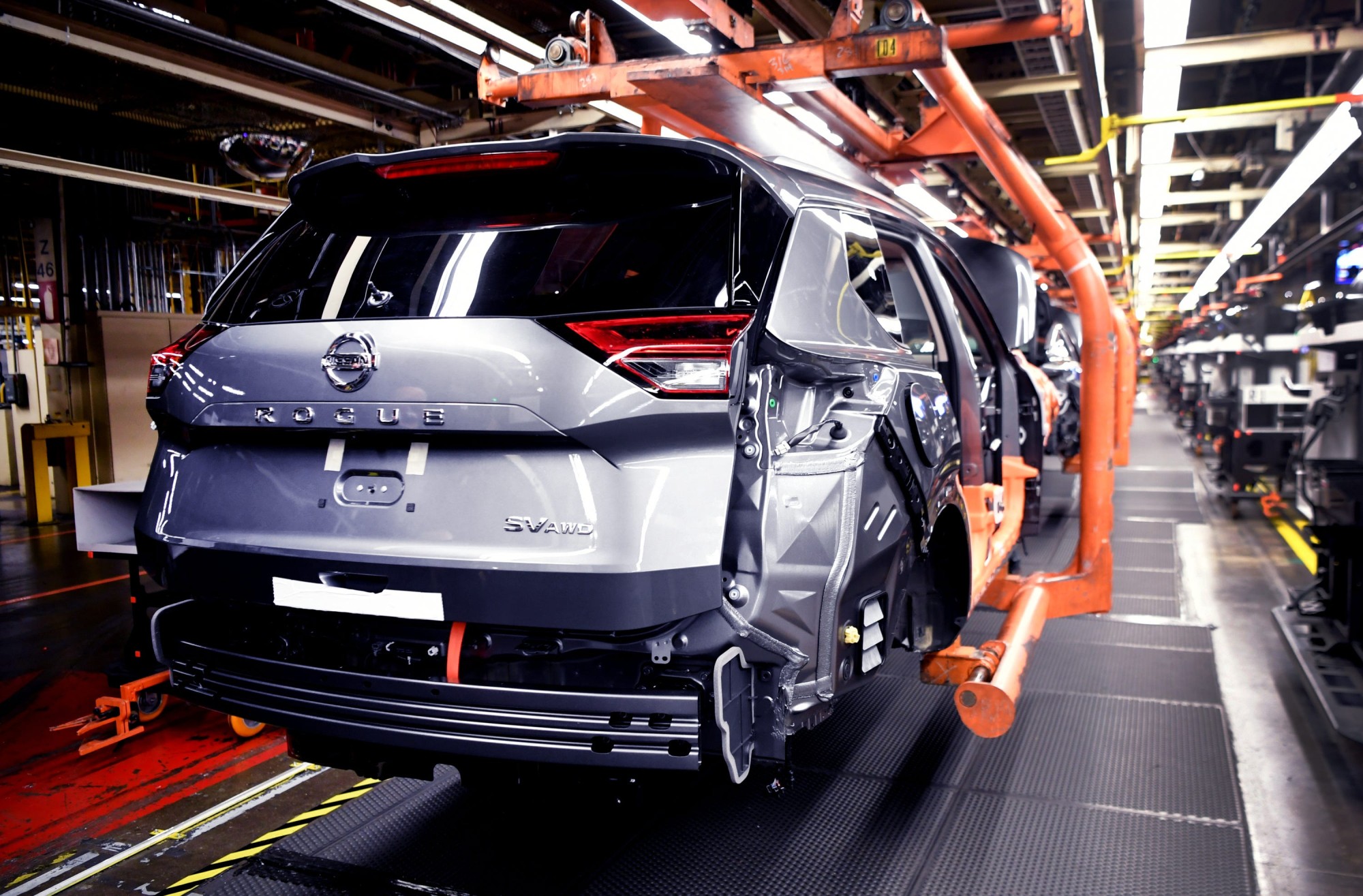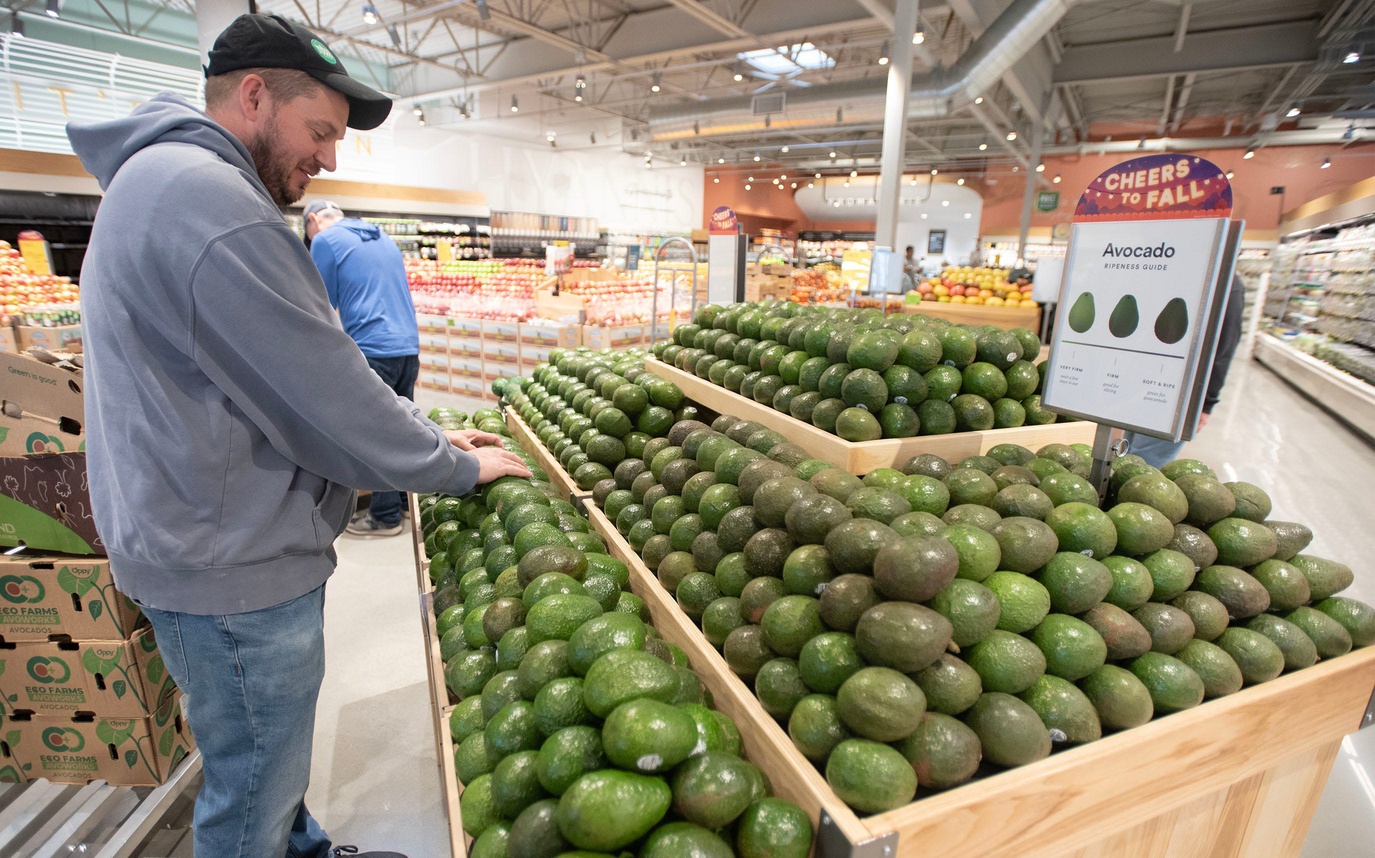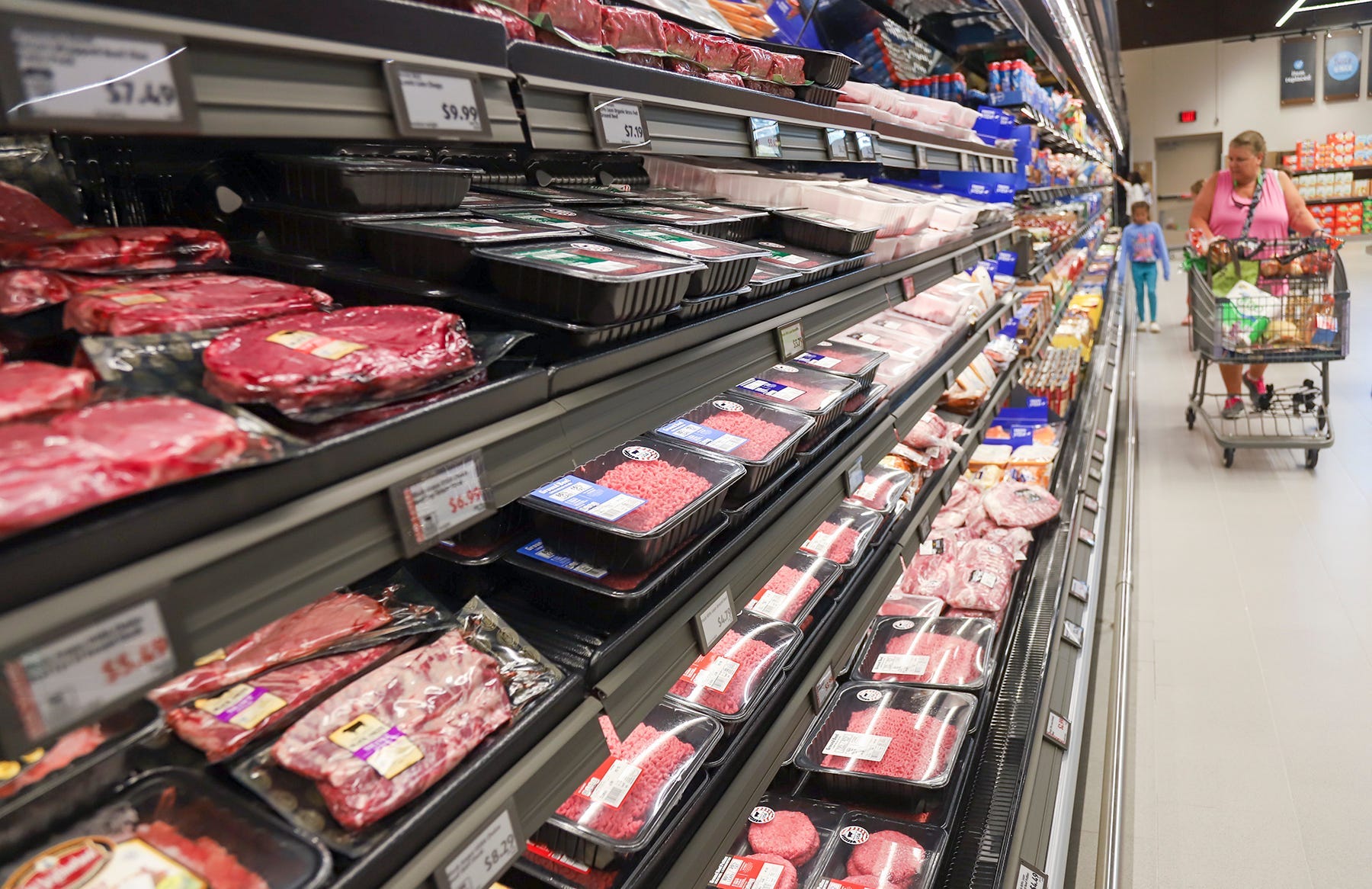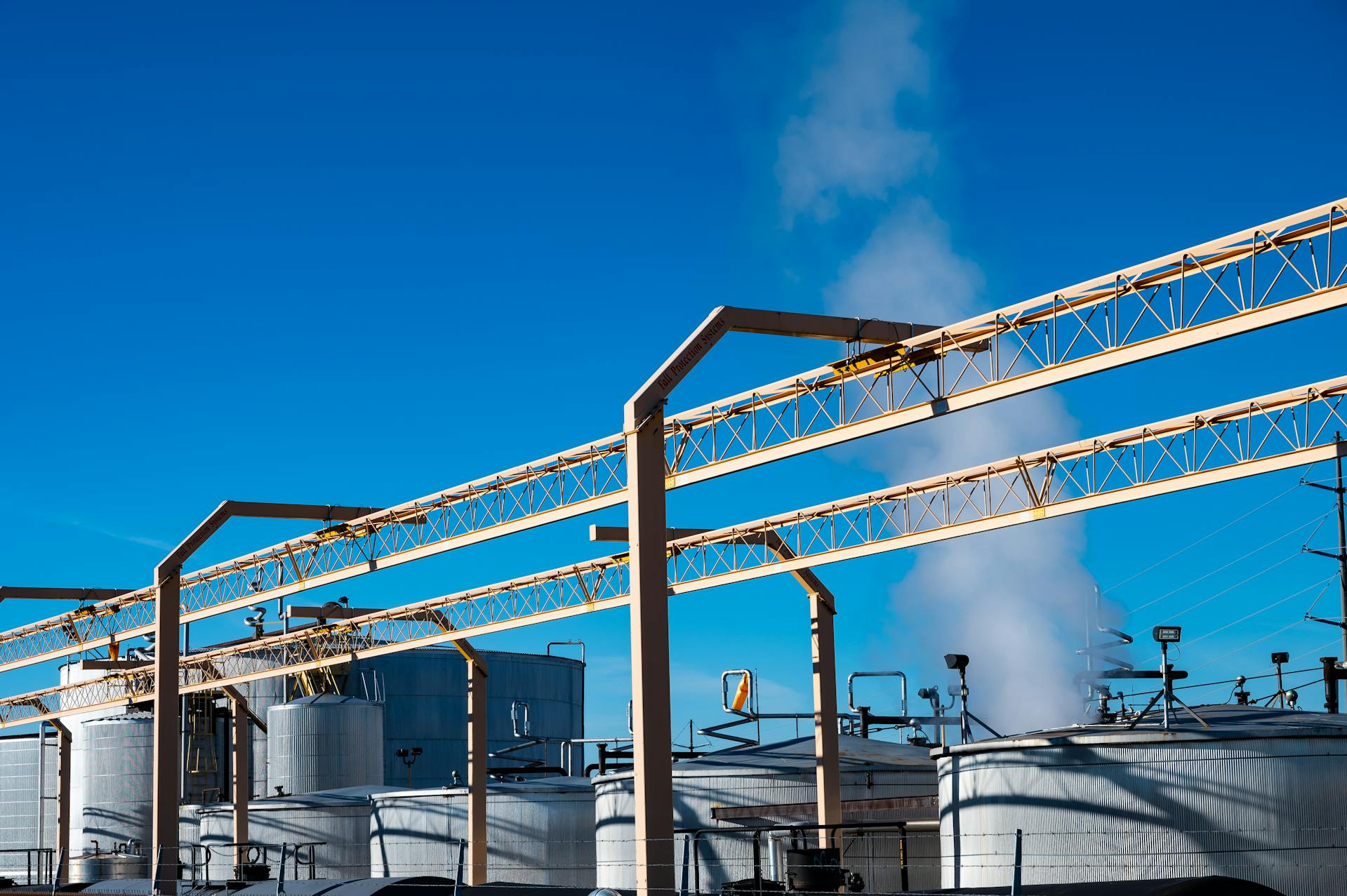Business
20 Items That Could Get Pricier Under Trump’s New Tariffs
By Jake Beardslee · December 11, 2024

Let's take a look at 20 products and categories likely to be affected by these tariffs and how they might impact your wallet: Rob Schumacher/The Republic / USA TODAY NETWORK

Automobiles and Auto Parts
The North American auto industry is deeply integrated, with vehicles and components frequently crossing borders before being sold in the U.S. Under Trump’s tariffs, the cost of a new car could increase by $1,000 to $5,000, according to industry analysts. This isn’t just limited to new vehicles; replacement parts like engines, tires, and transmissions will also see higher prices. Shelley Mays/The Tennessean / USA TODAY NETWORK
Mexican Manufacturing’s Impact on Car Prices
Automakers such as Ford, GM, and Stellantis rely heavily on parts manufactured in Mexican factories. For consumers, this means not only higher sticker prices at dealerships but also increased repair costs. The ripple effects could discourage car purchases and lead to a slowdown in the auto industry. Mandi Wright / USA TODAY NETWORK via Imagn Images
Fresh Produce
Mexico plays a significant role in supplying fresh produce to the U.S., with imports accounting for nearly half of the fruit and nuts and 63% of vegetables consumed in the country. Staples like avocados, tomatoes, and strawberries are poised for dramatic price increases. For instance, 90% of avocados in the U.S. come from Mexico. The Produce Distributors Association warns that tariffs distort the marketplace, pushing costs along the supply chain that consumers ultimately absorb at checkout. Steve Heaslip / USA TODAY NETWORK via Imagn Images
Beef and Pork
The U.S. imported $3 billion worth of beef and $1.1 billion worth of pork from Canada last year. These products, integral to many American diets, are expected to see price hikes. The integrated livestock supply chain between Canada and the U.S. means tariffs will disrupt meat production and processing, raising costs for consumers. Michael Snyder / USA TODAY NETWORK via Imagn Images
Cheese and Dairy Products
Canadian dairy exports to the U.S., including cheese, butter, and milk, form a significant part of the American dairy market. Tariffs will inflate prices on these products, making everyday staples less accessible for many families. Cheese, a versatile ingredient in dishes from pizza to sandwiches, could become a luxury for budget-conscious consumers. These price increases might also hit restaurants and fast-food chains, which rely heavily on dairy products, potentially leading to higher menu prices. cottonbro studio / Pexels
Gasoline
Canada supplies 60% of crude oil imported into the U.S., making it the top energy partner. Tariffs on Canadian oil could drive up gas prices by $0.25 to $0.75 per gallon, especially in regions like the Midwest, Rockies, and Great Lakes. Higher fuel prices have a domino effect, increasing transportation costs for goods across all industries. For everyday drivers, filling up at the pump could become a painful expense, particularly during summer travel seasons. Life of Pix / Pexels
Heating Oil and Natural Gas
Natural gas, a vital energy source for heating homes in winter, could also see price hikes under the proposed tariffs. Canada supplies nearly all U.S. natural gas imports, and disruptions to this trade would raise heating costs. Families in colder regions who depend on natural gas to stay warm may feel the financial pinch the most. Beyond households, industries that rely on natural gas as a power source may also face higher operational costs. Brett Sayles / Pexels
Tequila and Mezcal
Tariffs on Mexican imports won’t just affect produce and meat; they’ll hit tequila and mezcal, staples of U.S. cocktail culture. The U.S. imported $4.6 billion of these spirits in 2023, and their popularity is only growing. Tariffs will drive up costs, making it more expensive to enjoy a margarita or mezcal old fashioned at your favorite bar or restaurant. The Distilled Spirits Council points out that these products are uniquely tied to Mexican geography and production methods, meaning they cannot be produced elsewhere. energepic.com / Pexels
Mexican Beer
Mexican beer brands like Corona, Modelo, and Dos Equis make up 83% of U.S. beer imports, valued at over $3 billion annually. Tariffs will significantly impact the cost of these popular beverages, making your next six-pack or beer at the bar noticeably pricier. Given their dominant share in the beer market, these price increases could shift consumer preferences or lead to reduced consumption. Mica Asato / Pexels
Canadian Whisky
Canada is a key exporter of whisky to the U.S., with brands like Crown Royal and Canadian Club enjoying strong popularity. Tariffs will raise prices on these spirits, affecting their affordability for American consumers. As whisky is a staple in cocktails and celebrations, higher costs could deter some buyers or encourage shifts toward domestic brands. Pixabay / Pexels
Electronics
Consumer electronics such as smartphones, laptops, and TVs are heavily imported, particularly from China. Tariffs on these goods will make gadgets more expensive, affecting households that rely on these items for work, education, and entertainment. Retailers like Best Buy warn that nearly all consumer electronics are imported, leaving little room to mitigate price hikes. Zana Latif / Pexels
Footwear
With 99% of shoes in the U.S. being imported, Trump’s tariffs could significantly increase the cost of footwear. China, one of the primary exporters of shoes, will be particularly impacted by the proposed 10% additional tariffs. Families, especially those with growing children, could face steep price increases for essential items like school shoes, athletic sneakers, and winter boots. Retailers such as Walmart and Target may pass on the added costs to consumers, making affordable footwear harder to find. Ray Piedra / Pexels
Clothing
Apparel is another category heavily reliant on imports. Tariffs on clothing from Canada, Mexico, and China will raise costs across all fashion segments, from budget-friendly basics to high-end items. Popular retailers like TJ Maxx and Target have already signaled that prices on everyday essentials like jeans, jackets, and t-shirts could rise. For families on tight budgets, these price hikes may necessitate buying fewer items or turning to second-hand options. Willo M. / Pexels
Toys and Games
The majority of toys sold in the U.S. are manufactured in China, and proposed tariffs will likely make these products more expensive. With holidays and birthdays driving toy purchases, the increased costs will hit families particularly hard during gift-giving seasons. From stuffed animals to board games and action figures, these higher prices could lead parents to reconsider their shopping habits or opt for fewer toys under the tree. Kelly Wilkinson/IndyStar
Lithium-Ion Batteries
Lithium-ion batteries, essential for powering electric vehicles, laptops, and smartphones, are predominantly imported from China. Tariffs will raise costs, making eco-friendly technologies less accessible. Higher prices on batteries may also slow the adoption of electric vehicles, directly countering efforts to promote green energy solutions. Industries reliant on these batteries for manufacturing and logistics will also face increased expenses. Tyler Lastovich / Pexels
Furniture
Furniture is a cornerstone of imports from Mexico, Canada, and China. Companies like IKEA have expressed concerns that tariffs will increase costs on items like couches, tables, and chairs. These hikes will affect not only individual consumers furnishing their homes but also businesses such as restaurants and hotels that depend on affordable bulk purchases. Antoni Shkraba / Pexels
Home Improvement Supplies
Tools, fixtures, and building materials sourced from Canada and China will also be affected. Companies like Lowe’s and Stanley Black & Decker have already noted that tariffs would add significant costs to products used for renovations and construction. This could deter DIY enthusiasts and contractors alike, making home improvement projects more expensive across the board. Pixabay / Pexels
Packaged Snacks and Beverages
Packaged snacks and drinks often rely on ingredients like sugar, corn, and flavorings imported from Mexico and Canada. Tariffs could increase production costs for chips, cookies, sodas, and juices. Popular brands available in grocery stores may pass these costs to consumers, making convenience foods more expensive. Kaboompics.com / Pexels
Vitamins and Over-the-Counter Medications
Nearly 78% of vitamins imported into the U.S. come from China, and Trump’s proposed tariffs will directly impact their pricing. Multivitamins, supplements, and even basic medications like ibuprofen could see price increases. Anna Shvets / Pexels
Fertilizers and Agricultural Supplies
Canadian imports of fertilizers and other farming inputs are critical to U.S. agriculture. Tariffs on these products will raise production costs for American farmers, who will likely pass the added expenses on to consumers. This could make basic produce, grains, and other staples more expensive in grocery stores, compounding the impact of tariffs on agricultural imports. Anton Atanasov / Pexels
Construction Materials
Essential construction materials like lumber, steel, and aluminum are imported heavily from Canada and Mexico. With tariffs increasing their cost, construction projects across the U.S. will see higher budgets. This will likely translate to more expensive housing, infrastructure projects, and commercial developments. Pok Rie / Pexels
